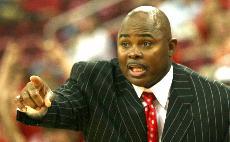When Billy Donovan won his second consecutive national championship as the men’s basketball coach at Florida in April, speculation abounded about whether he would leave for Kentucky or an NBA job and further enhance his already-hefty income.
A little more than a year ago, N.C. State was looking for a men’s basketball coach too. Two high-profile coaches reportedly were offered the job, only to stay with their own schools for more money.
From Gainesville, Fla., to Lexington, Ky., to Raleigh, the influence of continuous increases in salaries for top-flight coaches has become an ever-present concern in searches for football and men’s basketball coaches.
Differences in salaries among coaches at State and other schools
Public ACC universities don’t vary greatly in their base salaries for varsity head coaches, with much of the difference often coming in details such as endorsements or automobiles provided to coaches.
But where differences with other schools and even between coaches at State exist, Athletics Director Lee Fowler said it’s important to remember the business atmosphere of hiring coaches.
“Each time you hire, especially a main revenue sport, head coach, you’re really dealing with what the market is at that time, who you’re trying to hire, what they’re getting paid where they are. So sometimes to get a major coach, you’re trying to match what they were doing at the school before them and in most cases raise that,” Fowler said.
“So really you kind of deal in a vacuum when you’re dealing with hiring one coach, and then the next coach could be completely different.”
Roby Sawyers, an accounting professor who is on the faculty athletics council that advises Fowler, echoed the idea that big business principles prevail in hiring coaches.
“In business you typically understand that salaries are just based on supply and demand. These folks can demand these salaries, and you can’t really do much about that,” Sawyers said. “Individually you have to meet whatever the market price is for these men and women that you’re trying to hire or you don’t hire them.”
Former UNC system president William Friday said he disagrees with that mentality in sports hires.
“Now they say that it’s what the market demands. Well, the colleges are not in any market,” Friday said. “It’s what happens, you see, when sports gets to be too big.”
Are rising salaries a problem?
Friday has been an active voice in speaking out against college sports becoming big business, having sat on the Knight Commission, which has researched the influence of money on college sports.
In a Jan. 30, 2006 report, the Knight Commission said three in four Americans polled disagree with the statement that “successful college football and basketball coaches deserve to earn millions of dollars.” The report also said four in five Americans polled “say they are concerned that football coaches are often the highest paid person at a school participating in big-time college sports.”
Still, Friday said college sports fans don’t realize the extent of how money is taking over college sports.
“They just don’t take the time to know, and you can’t blame the sports fan. But I don’t know of anybody that thinks that an officer of an organization, whether it’s a university or a company, whatever, that somebody that has a position junior to that of the president should make five times the salary the president makes,” Friday said. “It’s just not a sound economic practice.”
Friday, though, said he sees rising salaries for football and men’s basketball coaches as a symptom of a larger problem in college sports.
“It’s a part of the bigger problem of the runaway costs of intercollegiate athletics and the debt that institutions are taking on in expanding stadiums and building skyboxes,” Friday said.
Dark days ahead?
O’Brien makes $240,000 per year in base salary and Lowe $210,000, along with their bevy of endorsements that put them around the $1 million mark in annual compensation.
But O’Brien and Lowe still make less than half of what some of the highest-paid football and men’s basketball coaches in the country make.
The trend across the country of rapid growth in salaries is something Sawyers said simply can’t hold up.
“There comes a point when you can’t charge more for a ticket; you can’t charge students more in their student fees. So where do you get the money to pay these ever-escalating salaries?” Sawyers said. “So it’s going to be difficult for salaries and total compensation packages to increase as much as they have in the past.”
Sawyers said the large revenues brought in football and men’s basketball aren’t even enough to support many further increases in coaches’ salaries.
“Our athletic department makes a lot of money with football and basketball,” Sawyers said. “But they spend it – on the other sports.”
Meanwhile, Friday, who is a sports fan, said college athletics is reaching a point where someone has to stand up and do something about the rising salaries and what he calls “excess” in college sports.
“It’s time for the sports fan to look in the mirror and ask the question, ‘Is this what I want my university to be doing?’ And this question’s got to be answered sometime pretty soon. We can’t go on doing what we’re doing,” Friday said. “The fabric won’t hold up.”
Whether any changes will soon be made in the money-driven atmosphere in college athletics will depend on how people want their university to be viewed, according to Friday.
“It just depends on how we wish to appear as being athletically dominated or not, but right now I don’t think we can go much farther, if any, but I know we shouldn’t raise student athletic fees any more,” Friday said. “Whether or not people are going to be willing to pay these ticket prices, we’ll soon find out because they’re going to have to go up again.”








